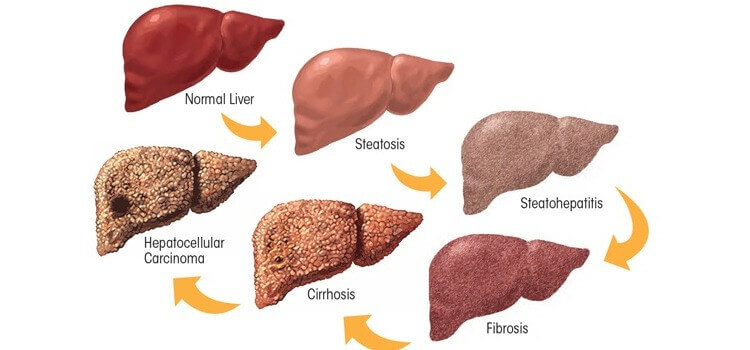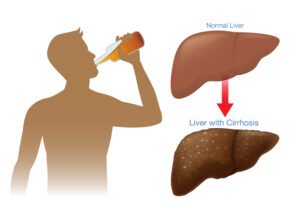Guest Blog: Living With Alcoholic Liver Disease –Why Worry?


Alcoholic fatty liver disease (AFLD) is a condition characterized by the accumulation of fat in the liver due to excessive alcohol consumption. India has a high prevalence of AFLD due to the high rates of alcohol consumption, particularly in the northern states of the country.
According to a study published in the Journal of Clinical and Experimental Hepatology, AFLD affects approximately 30% of the Indian population, and the prevalence is higher among men than women. AFLD is often asymptomatic in the early stages, but as the disease progresses, it can lead to serious complications such as liver cirrhosis, liver failure, and even liver cancer.
Alcoholic liver disease can manifest as a chronic condition, beginning with fatty liver and progressing to chronic hepatitis, fibrosis (scarring), and cirrhosis. Acute involvement can result in alcoholic hepatitis, which can be fatal.
Whereas fatty liver is a generally harmless ailment, the development of cirrhosis of the liver signifies a significant reduction in life expectancy. The real stage of cirrhosis is determined by the occurrence of complications such as portal hypertension with bleeding, esophageal varices (blood vomiting), ascites (abdominal distension), or hepatic encephalopathy (confusion, coma). Patients with advanced cirrhosis have a 6- to 18-month median survival duration. Serious alcoholic hepatitis has a 50% death rate.
One of the main risk factors for AFLD is the consumption of homemade alcoholic beverages, such as toddy and country liquor, which are often contaminated with toxins that can damage the liver. Additionally, the lack of awareness about the dangers of excessive alcohol consumption and the absence of regulations on the sale and distribution of alcohol in many parts of the country contribute to the high prevalence of AFLD in India.
Prevention and management of AFLD require a multi-faceted approach, including measures such as increasing public awareness about the risks of alcohol consumption, regulating the sale and distribution of alcohol, and providing access to affordable healthcare services for early detection and treatment of AFLD.
Complete abstinence is required for each form of treatment for alcoholic liver disease; the other therapeutic treatments are just supportive. Steroids can be used to treat severe alcoholic hepatitis. Cirrhotic individuals who stop consuming alcohol can be eligible for transplantation, resulting in a significantly increased life expectancy.
In addition to lifestyle modifications, such as reducing alcohol consumption and adopting a healthy diet and exercise routine, medication and other therapies may also be used to manage AFLD. However, early detection and intervention are key to preventing the progression of the disease and reducing the risk of serious complications.
Am I drinking too much?
The ‘CAGE’ questionnaire is often used in the assessment of patients with alcoholic liver disease, as excessive alcohol consumption is a major cause of this condition. It consists of four questions that ask about the respondent’s drinking habits:
- Have you ever felt you should Cut down on your drinking?
- Have people Annoyed you by criticizing your drinking?
- Have you ever felt Guilty about drinking?
- Have you ever taken a drink first thing in the morning (Eye-opener) to steady your nerves or to get rid of a hangover?
The majority of patients with alcoholism have a favorable reaction to at least two questions, and roughly 50% have a good response to all four questions. In comparison, more than 80% of non-alcoholics respond negatively to all four questions.
In conclusion, AFLD is a significant public health issue in India due to the high rates of alcohol consumption and lack of awareness about the risks associated with excessive drinking. Addressing this issue requires a comprehensive approach that involves public education, regulatory measures, and access to quality healthcare services. By taking proactive steps to prevent and manage AFLD, India can improve the health and well-being of its citizens and reduce the burden of liver disease in the country.
About the author- Dr. Debasis Datta, Director- Department of Gastroenterology and GI Surgery, Fortis Hospital Anandapur
